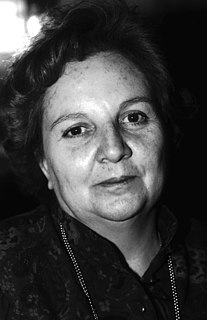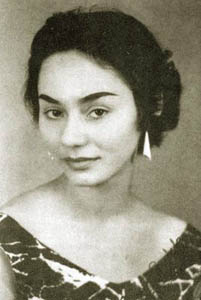
Plinio Apuleyo Mendoza (born January 1, 1932) is a Colombian journalist, writer, and diplomat. Mendoza was named in honour to the Roman authors Pliny the Younger and Apuleius.

Plinio Apuleyo Mendoza (born January 1, 1932) is a Colombian journalist, writer, and diplomat. Mendoza was named in honour to the Roman authors Pliny the Younger and Apuleius.
Plinio Apuleyo Mendoza born in Tunja, Boyacá in 1932, son of the lawyer and politic Plinio Mendoza Neira, who was witness to the murder of Jorge Eliécer Gaitán. [1] He studied political science at Sorbonne in Paris. [2]
Mendoza had a close friendship with Nobel Prize winner Gabriel García Márquez. They spent time in Europe during the early 60s. Mendoza published a biographical novel regarding the life and anecdotes of García Márquez and their circle of friends, poets, and writers during those years in Europe. The book was entitled "The Fragrance of the Guava". Mendoza served as First Secretary of the Colombian Embassy in France, writing newspaper articles for several international publications at the same time. [3] After returning to Colombia in 1959, he became a full-time writer and journalist. [4]

Jorge Mario Pedro Vargas Llosa, 1st Marquis of Vargas Llosa, more commonly known as Mario Vargas Llosa, is a Peruvian novelist, journalist, essayist, and a former politician, who also holds Spanish citizenship. Vargas Llosa is one of Latin America's most significant novelists and essayists, and one of the leading writers of his generation. Some critics consider him to have had a larger international impact and worldwide audience than any other writer of the Latin American Boom. In 2010 he won the Nobel Prize in Literature, "for his cartography of structures of power and his trenchant images of the individual's resistance, revolt, and defeat." He also won the 1967 Rómulo Gallegos Prize, the 1986 Prince of Asturias Award, the 1994 Miguel de Cervantes Prize, the 1995 Jerusalem Prize, the 2012 Carlos Fuentes International Prize, and the 2018 Pablo Neruda Order of Artistic and Cultural Merit.

The Rómulo Gallegos International Novel Prize was created on 6 August 1964 by a presidential decree enacted by Venezuelan president Raúl Leoni, in honor of the Venezuelan politician and President Rómulo Gallegos, the author of Doña Bárbara.
Álvaro Vargas Llosa is a Peruvian-Spanish writer and political commentator and public speaker on international affairs. He is also the writer and presenter of a documentary series for National Geographic Channel on contemporary Latin American history that is being shown around the world. He leads the business advisory committee of the Fundación International para la Libertad (FIL). He was very involved in the struggle for the return of democracy in Peru at the end of the 1990s and the years 2000/1.

El Espectador is a newspaper with national circulation within Colombia, founded by Fidel Cano Gutiérrez on 22 March 1887 in Medellín and published since 1915 in Bogotá. It changed from a daily to a weekly edition in 2001, following a financial crisis, and became a daily again on 11 May 2008, a comeback which had been long rumoured, in tabloid format. From 1997 to 2011 its main shareholder was Julio Mario Santo Domingo.
Latin American literature consists of the oral and written literature of Latin America in several languages, particularly in Spanish, Portuguese, and the indigenous languages of the Americas. It rose to particular prominence globally during the second half of the 20th century, largely due to the international success of the style known as magical realism. As such, the region's literature is often associated solely with this style, with the 20th century literary movement known as Latin American Boom, and with its most famous exponent, Gabriel García Márquez. Latin American literature has a rich and complex tradition of literary production that dates back many centuries.

Cambio was a Colombian-based social, political and economics magazine. Founded with the name Cambio 16 it was later sold and renamed Cambio in 1998 to nobel laureate Gabriel Garcia Marquez and other associates. In 2006 the magazine was sold to "Casa Editorial El Tiempo", the owner of Colombia's El Tiempo newspaper. The magazine ceased publication in February 2010.

The Latin American Boom was a literary movement of the 1960s and 1970s when the work of a group of relatively young Latin American novelists became widely circulated in Europe and throughout the world. The Boom is most closely associated with Julio Cortázar of Argentina, Carlos Fuentes of Mexico, Mario Vargas Llosa of Peru, and Gabriel García Márquez of Colombia. Influenced by European and North American Modernism, but also by the Latin American Vanguardia movement, these writers challenged the established conventions of Latin American literature. Their work is experimental and, owing to the political climate of the Latin America of the 1960s, also very political. "It is no exaggeration", critic Gerald Martin writes, "to state that if the Southern continent was known for two things above all others in the 1960s, these were, first and foremost, the Cuban Revolution and its impact both on Latin America and the Third World generally, and secondly, the Boom in Latin American fiction, whose rise and fall coincided with the rise and fall of liberal perceptions of Cuba between 1959 and 1971."

Carlos Alberto Montaner is an exiled Cuban author and journalist known for his criticism of Fidel Castro and the Cuban government. He has been published widely in Latin American newspapers, and published fiction and non-fiction books on Latin America. Montaner is a political analyst for CNN en Español.

Gabriel José de la Concordia García Márquez was a Colombian novelist, short-story writer, screenwriter, and journalist, known affectionately as Gabo or Gabito throughout Latin America. Considered one of the most significant authors of the 20th century, particularly in the Spanish language, he was awarded the 1972 Neustadt International Prize for Literature and the 1982 Nobel Prize in Literature. He pursued a self-directed education that resulted in leaving law school for a career in journalism. From early on he showed no inhibitions in his criticism of Colombian and foreign politics. In 1958, he married Mercedes Barcha Pardo; they had two sons, Rodrigo and Gonzalo.

Carmen Balcells Segala was a literary agent of Spanish-language authors from Spain and Latin America, including six Nobel Prize–winning authors. She led her agency from 1956 to 2000, during which time she was one of the driving forces behind the 1960s boom of Latin American literature. After her retirement she was awarded with an honorary doctorate, besides other awards, but returned to the agency in 2008. Authors who have published with Balcells have dedicated novels to her and included her as characters in her work; she is praised as "one of the most powerful and influential women in Spanish letters." She died at the age of 85 in Barcelona on 20 September 2015. At her death Mario Vargas Llosa said: "Carmen queridísima, hasta pronto".

Juan Gabriel Vásquez is a Colombian writer, journalist and translator. Regarded as one of the most important Latin American novelists working today, he is the author of seven novels, two volumes of stories and two books of literary essays, as well as hundreds of pages of political commentary. His novel The Sound of Things Falling, published in Spanish in 2011, won the Alfaguara Novel Prize and the 2014 International Dublin Literary Award, among other prizes. In 2012, after sixteen years in Paris, the Belgian Ardennes and Barcelona, Vásquez moved back to Bogotá. His novels have been published in 28 languages.

William Ospina is a Colombian poet, essayist and novelist. He was born in Herveo, Tolima. He won the Romulo Gallegos Prize for his novel El país de la canela, part of a trilogy about the invasion and conquest of South America.
Velvet is a Spanish drama television series created by Ramón Campos and Gema R. María and produced by Bambú Producciones for Antena 3. Its budget is estimated in 500,000 euros per episode. The main storyline of the show is the love story of Alberto Márquez, heir of Galerías Velvet, one of the most prestigious fashion houses in the Spain of the late 1950s, and Ana Ribera, who works as a seamstress there.

The Fragrance of Guava is a book based on the long conversations between Gabriel García Márquez and his close friend Plinio Apuleyo Mendoza. Published in 1982, the book describes the life of García Márquez, from his early childhood to his encounters with celebrities. The title of the book in Spanish is El Olor de la Guayaba. It was translated as The Fragrance of Guava; however, the literal translation should be The Smell of Guava.
Faber Caribbean Series was a series of books published by Faber & Faber with the stated aim "to publish the finest work being produced in the Caribbean and the Caribbean diaspora, in the four major languages of the region: English, French, Spanish and Dutch." Launched in 1998, the series was edited by Kittitian-British writer Caryl Phillips, and aimed to familiarize Anglophone audiences with writers such as Antonio Benitez-Rojo, Maryse Condé and Pedro Juan Gutierrez.
Marvel Luz Moreno Abello was a Colombian writer. She was chosen by Cromos magazine as "one of the hundred most influential women in the history of Colombia."

Mercedes Raquel Barcha Pardo was the wife of novelist Gabriel García Márquez (1927–2014).

Guide to the Perfect Latin American Idiot is an essay by Plinio Apuleyo Mendoza, Carlos Alberto Montaner and Álvaro Vargas Llosa published in 1996. The authors analyze Latin American history and the way of thinking of both the Latin American political elites and intellectuals. The same year an edition was published in Spain with an additional chapter and a different prologue.

The 2010 Nobel Prize in Literature was awarded the Peruvian writer Mario Vargas Llosa "for his cartography of structures of power and his trenchant images of the individual's resistance, revolt, and defeat." The prize was announced by the Swedish Academy on 7 October 2010. He is the first Nobel laureate in Literature from Peru and the fifth Latin American to become one after 1982 Colombian laureate Gabriel García Márquez and 1971 Chilean laureate Pablo Neruda.

Karoll Iván Márquez Mendoza, is a Colombian actor and singer, known for his starring role in the Caracol Televisión soap opera Oye bonita. He is also known for his roles in Un sueño llamado salsa (2010) and Amor de Carnaval (2012).